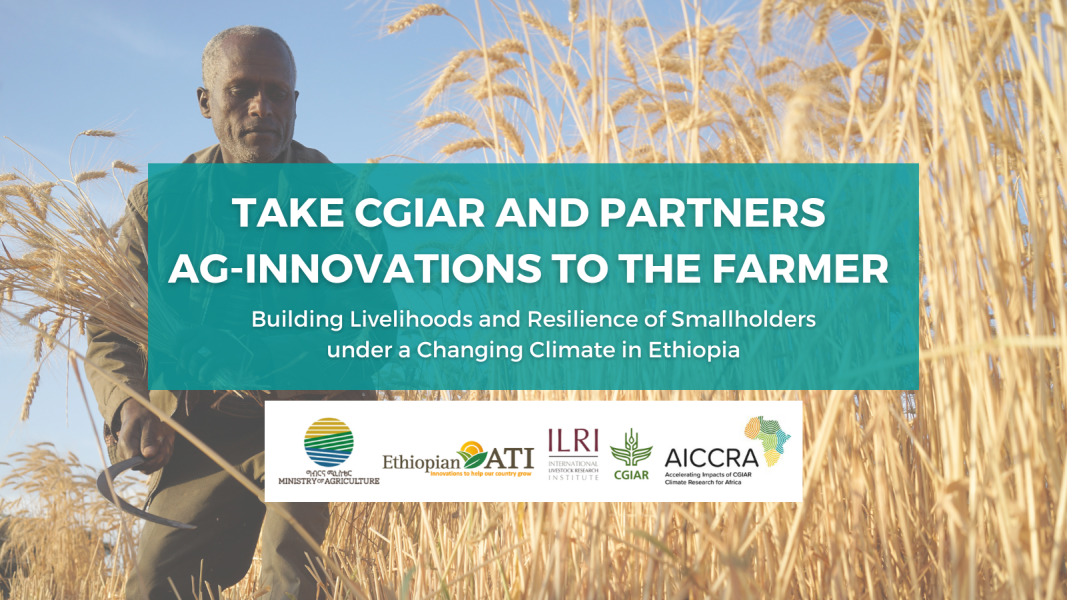Accelerating Impacts of CGIAR Climate Research for Africa (AICCRA) Zambia is looking for collaborations with Small and Medium-sized Enterprises (SMEs) to scale up various innovations related to Climate-Smart Agriculture (CSA) in Zambia, including digital, financial, social, technological, and service innovations.
Activities that guarantee the use of such technologies while enhancing youth and gender inclusion and promoting environmental sustainability should be included in partnership proposals. AICCRA welcomes partnerships and social enterprises with local businesses to apply.
Read also: AVEVA reduce carbon footprints through tech innovations
Successful partnerships will be able to collaborate in a partnership model to co-implement and scale market-system-based solutions in climate-smart agriculture; implement, scale, and improve sustainable finance mechanism(s) as part of the scaling strategy; incorporating digital innovations into the design of the scaling strategy; demonstrate the impact and innovation users reached within a year; and support the development of food producers, women, youth, and other marginalised groups’ capacities in pertinent topics directly related to the activity.
Accelerator grants will be provided for successful applicants. The registration process will close on July 19, 2024.
About AICCRA Zambia Accelerator Programme
The scientific-driven AICCRA Zambia Accelerator Programme, introduced in February 2022, provides SMEs and investors with a win-win solution by demonstrating how science and technology can be leveraged to catalyse finance into climate-smart agriculture for significant change.
AICCRA Zambia, in collaboration with national incubators and the private sector, has fostered innovation by offering accelerator grants to small and medium-sized enterprises (SMEs) involved in Climate Information Services (CIS) delivery and CSA technology scaling.
This approach aims to reduce risks associated with scaling up innovations and improve social inclusion, climate resilience of value chains, and sustainable land and water use. Along with identifying potential entry points to build resilience as affected by climate change through user-centred co-design to enhance gender and social inclusion in terms of user preference for the solution and increase access to the solution, it has also identified youth vulnerability and gender within the food system.
What to benefit
Selected candidates will receive a scaling grant of US$ 30,000 per bundle, which will be disbursed over the project’s lifespan based on their needs and the planned budgeting. They will be disbursed only when it can be demonstrated that the funds are being used to support the suggested scaling initiatives.
CGIAR partners will offer technical assistance in agronomic best practice development and implementation, commercial/business advisory, scientific assistance, networking opportunities through multi-stakeholder dialogues, and monitoring and evaluation throughout the active project duration (August 2024–May 2025). It is anticipated that participants will collaborate closely with CGIAR partners.
Eligibility criteria
Businesses submitting applications should be able to provide evidence of their commercial viability and pertinent experience in the technological fields they are proposing. Each partnership application should have at least one woman- or youth-led agribusiness partner. SMEs with local registrations are encouraged to apply.
Every application for a partnership should include a section on digital agriculture technology (with an ag tech business). To carry out the suggested scope of work, each partnership application must include current employees who meet the necessary experience and certification requirements.
Read also: Innovating with AI: GTA Conference 2024 Apply now!
About AICCRA
Accelerating Impacts of CGIAR Climate Research for Africa (AICCRA) collaborates with national and regional partners throughout Africa to give millions of smallholder farmers on the continent access to and enable the use of validated technologies and practices for climate-smart agriculture, as well as improved climate information services (CIS). Consortium of International Agricultural Research Centers (CGIAR)-led solutions are being deployed on a scale that meets the climate problem thanks to their creative partnerships.
In addition to several regional initiatives in West Africa and East and Southern Africa that support national efforts to benefit a broader range of stakeholders throughout these regions, AICCRA maintains teams in six countries: Senegal, Ghana, Mali, Ethiopia, Kenya, and Zambia. AICCRA teams concentrate on four topics: gender and social inclusion, partnerships, knowledge, and innovation.
From 2021 to 2023, AICCRA’s inventions touched seven million farmers. This is an extension of the over fifty years of innovation spearheaded by the CGIAR, the world’s most significant publicly supported research collaboration for agriculture and food security.
Under the direction of Alliance Bioversity International – CIAT, a CGIAR research centre, AICCRA is partly funded by the World Bank Group’s International Development Association (IDA), which provides aid to the world’s poorest nations.















